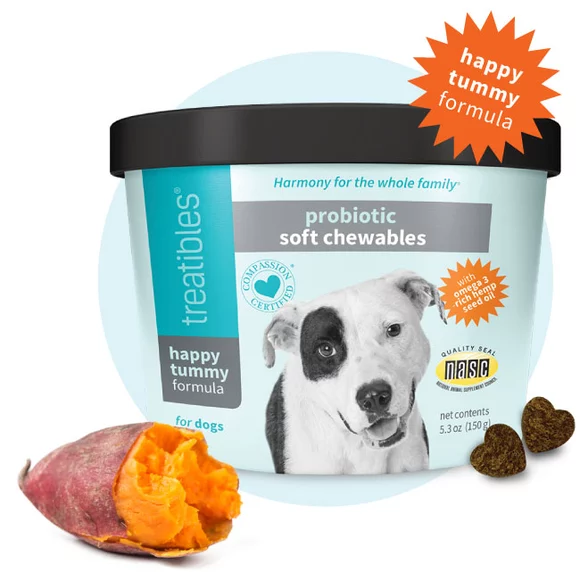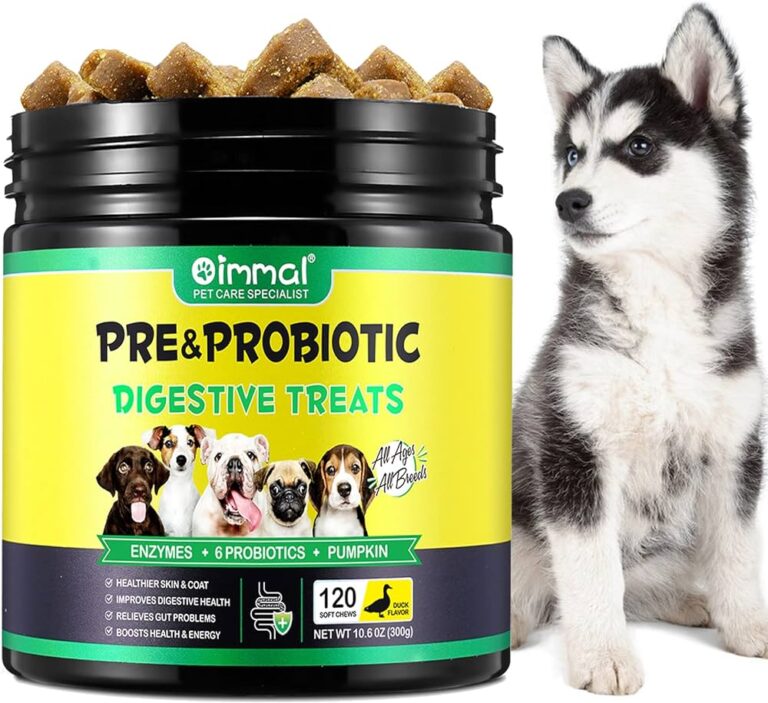Feed your dog a bland diet consisting of boiled chicken or boiled hamburger with rice for a low-fat, easy-to-digest meal when they have diarrhea. This will provide them with both protein and carbohydrates while minimizing fat intake.

Credit: www.amazon.com
Understanding Canine Diarrhea
Canine diarrhea is a common condition that many dog owners have to deal with at some point. It is characterized by loose, watery stools and can be caused by various factors such as dietary changes, food allergies, infections, or underlying health issues. Understanding the causes and impact of diarrhea on your dog’s health is crucial in managing their condition and providing them with the appropriate care.
Causes Of Diarrhea In Dogs
There are several factors that can cause diarrhea in dogs. These include:
- Food allergies or sensitivities
- Ingestion of spoiled or contaminated food
- Bacterial or viral infections
- Parasites such as giardia or worms
- Stress or anxiety
- Changes in diet or new food introduction
Identifying the underlying cause of your dog’s diarrhea is essential in determining the appropriate course of treatment.
Impact Of Diarrhea On A Dog’s Health
Diarrhea can have various impacts on a dog’s health, including:
- Dehydration: Frequent loose stools can lead to dehydration, which can be dangerous for your dog. It is important to ensure that they have access to plenty of clean water throughout the day.
- Malnutrition: Chronic diarrhea can lead to nutrient deficiencies, as the body is not able to absorb essential nutrients properly.
- Weight loss: If your dog’s diarrhea persists for an extended period, it can result in weight loss and a general decline in their overall health.
- Discomfort: Diarrhea can cause abdominal pain and discomfort for your dog, leading to decreased appetite and lethargy.
- Compromised immune system: Frequent episodes of diarrhea can weaken your dog’s immune system, making them more susceptible to infections and other health issues.
Monitoring your dog’s bowel movements and addressing diarrhea promptly can help prevent these health complications.
When To Consult A Veterinarian
While most cases of diarrhea in dogs can be managed at home, there are situations where it is important to consult a veterinarian. You should seek veterinary advice if:
- Your dog’s diarrhea persists for more than 24-48 hours
- There is blood or mucus in the stool
- Your dog is experiencing severe abdominal pain
- There are other symptoms present, such as vomiting or lethargy
- Your dog has underlying health conditions or is on medications
A veterinarian can help determine the underlying cause of your dog’s diarrhea and provide appropriate treatment or dietary recommendations.
Recommended Foods For Dogs With Diarrhea
When your beloved furry friend is experiencing diarrhea, it’s important to provide them with gentle and easily digestible foods that can help soothe their upset stomach. Here are some recommended foods that can provide relief and nourishment for dogs with diarrhea:
Boiled Chicken Or Hamburger With Rice
One option is to offer boiled chicken or hamburger with rice. Boiling the meat helps remove excess fat, making it easier for your dog to digest. The chicken or hamburger provides a lean source of protein, while the rice offers a carbohydrate for energy. This combination can help settle your dog’s stomach and provide the necessary nutrients to aid in the recovery process.
Pumpkin And Sweet Potatoes
Pumpkin and sweet potatoes are another excellent choice for dogs with diarrhea. These fiber-rich foods are known for their ability to firm up loose stools. They also provide essential vitamins and minerals, promoting overall digestive health. You can serve them cooked and mashed, or even try adding a spoonful to your dog’s regular meals to aid in digestion and regulate bowel movements.
Other Fiber-rich Options
In addition to pumpkin and sweet potatoes, there are other fiber-rich options that can be beneficial for dogs with diarrhea. These include foods such as white rice, oatmeal, and cottage cheese. These foods are gentle on the stomach and can help bind the stool, providing relief for your furry friend. Remember to introduce new foods gradually and monitor your dog’s reaction to ensure they tolerate them well.
Keep in mind that every dog is unique, and what works for one may not work for another. It’s always a good idea to consult with your veterinarian before making any dietary changes, especially if your dog’s diarrhea persists or worsens.
Tips For Managing And Preventing Diarrhea In Dogs
When your dog has diarrhea, feeding them a bland diet consisting of boiled chicken or hamburger with rice can help soothe their upset stomach. Avoid fatty foods and opt for easily digestible options like lean proteins and carbohydrates to promote healing and alleviate symptoms.
Feeding Small, Frequent Meals
Feeding small, frequent meals is an effective way to manage diarrhea in dogs. Instead of giving your dog one or two large meals, divide their daily food portion into four to six smaller meals, spaced throughout the day. This approach helps to ease the strain on the digestive system and allows for better absorption of nutrients. It also helps to regulate bowel movements and prevent further irritation. Make sure to monitor your dog’s appetite and adjust the portion sizes accordingly.Maintaining Hydration With Fresh Water
Keeping your dog properly hydrated is crucial when they have diarrhea. Diarrhea can cause dehydration, so it’s important to provide your pup with plenty of fresh, clean water. Make sure to change the water frequently to ensure its freshness. If your dog is not drinking enough water, you can try adding a small amount of low-sodium chicken broth to entice them to drink. Monitoring your dog’s water intake is essential to prevent dehydration and aid in their recovery.Avoiding Food Triggers And Unknown Substances
When your dog is experiencing diarrhea, it’s crucial to identify and avoid any potential food triggers or unknown substances that may be causing the issue. Certain foods, such as fatty or spicy foods, can irritate the digestive system and worsen diarrhea. Additionally, your dog may have allergies or sensitivities to certain ingredients that could be causing the diarrhea. Avoid feeding your dog scraps from the table and stick to their regular diet until their bowel movements have normalized.Consulting A Veterinarian For Long-term Management
If your dog’s diarrhea persists for more than 24 hours or if you notice any other concerning symptoms, it’s important to consult a veterinarian for proper diagnosis and long-term management. A veterinarian will be able to determine the underlying cause of the diarrhea and recommend appropriate treatment and dietary changes. They may also prescribe medications or suggest specialized diets to alleviate the symptoms and prevent further episodes of diarrhea. Regular check-ups and open communication with your vet are essential for the overall health and well-being of your furry friend.In summary, managing and preventing diarrhea in dogs involves feeding small, frequent meals, maintaining hydration with fresh water, avoiding food triggers and unknown substances, and consulting a veterinarian for long-term management. Following these tips will help to alleviate your dog’s discomfort and promote a speedy recovery. Remember to always prioritize your dog’s health and seek professional guidance when needed.
Credit: m.facebook.com

Credit: treatibles.com
Frequently Asked Questions On What To Feed Your Dog When They Have Diarrhea
What Foods Help Dogs Get Rid Of Diarrhea?
To help dogs get rid of diarrhea, feed them a bland diet of boiled chicken or hamburger and rice. This low-fat, easy-to-digest meal can help soothe their stomach and regulate digestion. Additionally, foods rich in soluble fiber like sweet potatoes, pumpkin, and chicken can firm up loose stools.
What Stops Dog Diarrhea Fast?
To stop dog diarrhea fast, feed them a bland diet of boiled chicken or boiled hamburger with rice. This low-fat, easy-to-digest meal can help reduce fluid loss and promote healing. You can also consider giving them loperamide (Imodium AD™) with your vet’s approval.
Foods rich in soluble fiber like sweet potatoes, pumpkin, chicken, and rice can help firm up loose stools. Ensure they have plenty of fresh water for hydration and regular exercise for intestinal muscle movement.
What’s Best To Feed A Dog With Diarrhea?
For dogs with diarrhea, it’s best to feed them a bland diet consisting of boiled chicken or hamburger with rice. This low-fat, easy-to-digest meal can help soothe their stomach and provide necessary nutrition. Additionally, foods rich in soluble fiber like sweet potatoes and pumpkin can help firm up their stools.
What Foods Firm Up Dog Stools?
Foods rich in soluble fiber like sweet potatoes, pumpkin, chicken, and rice can help firm up dog stools. Make sure your dog stays hydrated with plenty of fresh water and gets regular exercise to promote healthy bowel movements.
Conclusion
To effectively manage your dog’s diarrhea, feeding them a bland diet is crucial. This includes boiled chicken or hamburger with rice, providing a low-fat and easily digestible meal. Additionally, foods rich in soluble fiber like sweet potatoes and pumpkin can help firm up loose stools.
Remember to keep your dog hydrated and consult with your veterinarian if the diarrhea persists. By carefully selecting the right foods, you can help your furry friend recover and maintain their overall health.



